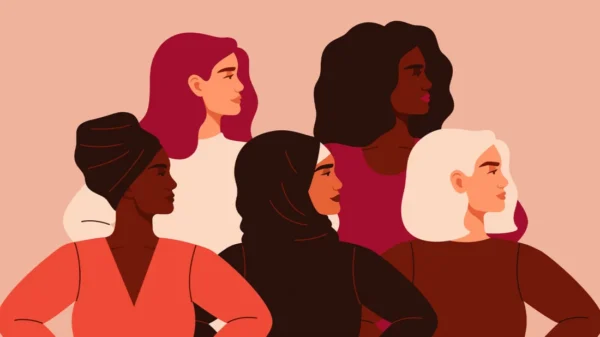

As the global digital landscape evolves at lightning speed, the potential for girls to reshape their futures has never been greater. Yet, in countries like Bangladesh, millions of girls and young women remain sidelined and face barriers which hinders their growth and potential. At a time where technology shapes our lives, equipping girls with essential digital skills is crucial for their independence and empowerment.
Since 1995, the internet has transformed from being a luxury towards becoming a global necessity. Today, nearly 5.4 billion people globally, which is about 67.1% of the world’s population, have their footprints in the online world (Statista, 2024).
Moreover, the Covid-19 pandemic has further highlighted the importance of digital literacy, making it an essential skill for social and economic participation. It is projected that 80% of jobs in Southeast Asia by the year 2030 will require some form of digital proficiency (UNICEF, 2023).
Despite this demand, girls and young women (aged 15-24 years) remain one of the most marginalized groups in many societies. While frameworks like the Convention on the Rights of the Child (CRC) and the Convention on the Elimination of All Forms of Discrimination Against Women (CEDAW) exist for children and women, there is no concrete constitutional framework for girls, resulting in them being one of the most marginalized groups worldwide as their rights are often overlooked.
In Bangladesh, deeply rooted gender norms due to a society with strong patriarchal beliefs presents daily challenges for girls and young women. It is alarming that over half of all girls are victims of child marriage before turning 18 years (UNFPA, 2024). Among those aged 15-19 years, 73 out of every 1,000 girls give birth (World Bank, 2022), and 54% of women experience physical or sexual violence at least once in their lifetime (BBS, 2023).
Given the harsh reality of life and daily challenges and barriers they overcome, focusing on digital skill development might seem secondary. However, it cannot be emphasized more that now there is a momentum to focus and utilize this thought more than ever.
With a youth population of approximately 45 million among which 10% are within the age group of 15-19 years, many of them increasingly engage with the digital world through mobile devices. Yet, girls often face unique barriers such as social stereotypes and patriarchal norms which hinder their access to technology and digital skills.
According to the Digital Literacy Report 2023 by UNICEF, girls are 1.8 times less likely than boys to own a smartphone. Many rural households own a single device, but cultural norms often restrict girls’ access to it. Stereotypes such as “boys are more likely to be better with digital devices than girls” further discourage girls from pursuing digital literacy.
Furthermore, even girls who attend school may struggle with digital skills due to language barriers as they are not fluent in English, leading to lower confidence levels compared to their boys.
There is also a valid concern by most parents about online safety of girls, which can prevent them from accessing digital tools, limiting their opportunities for learning and growth. We do believe that simply increasing access does not guarantee the development of skills.
A World Bank report from 2022 indicated that while 39% of people in Bangladesh use the internet, many lack the skills to navigate it effectively, which is also another perspective of the problem. Misinformation poses a significant threat, disproportionately affecting girls and young women. The spread of false information can negatively affect girls and young women as it directly affects their mental health.
It is essential to prioritize digital literacy and skills for girls and young women in countries like Bangladesh which is progressing economically and socially, yet girls and young women are held back and equal rights are often not ensured. One significant step towards prioritization of this agenda could be integrating digital skills into educational curricula.
Stereotypes such as ‘boys are more likely to be better with digital devices than girls’ further discourage girls from pursuing digital literacy
Teachers and educators can also be a catalyst to combat gender stereotypes and encourage girls to pursue technology confidently. Moreover, there is a dire need for meaningful participation of girls and young people in discussions about their needs and perspectives at the national level. This is a vital requirement to know, analyze, understand, and respond to their needs accordingly.
Youth organizations which work on girls’ rights should receive digital literacy and financial support to amplify their impact. Empowering these organizations can create pathways for girls and young women to access digital resources and develop their skills in rural settings.
Gender or sex should not be the determinant factor in defining the potential of girls and young women. Yet unfortunately, for millions worldwide, societal barriers restrict their rights, choices, and futures.
To achieve gender equality, we must recognize digital literacy as a powerful tool for empowerment. Technology can open doors to new opportunities and enhance leadership potential among girls and young women.
We cannot let fears for safety and security hinder their progress. Instead, we should harness technology to build a more equitable world. Our hope is that all technological possibilities will be equally accessible to every girl and young woman, enabling them to fulfill their potential and make a lasting impact in the world.
Masuma Billah and Shemonty Monjari work for the Gender Justice and Diversity Program at BRAC.